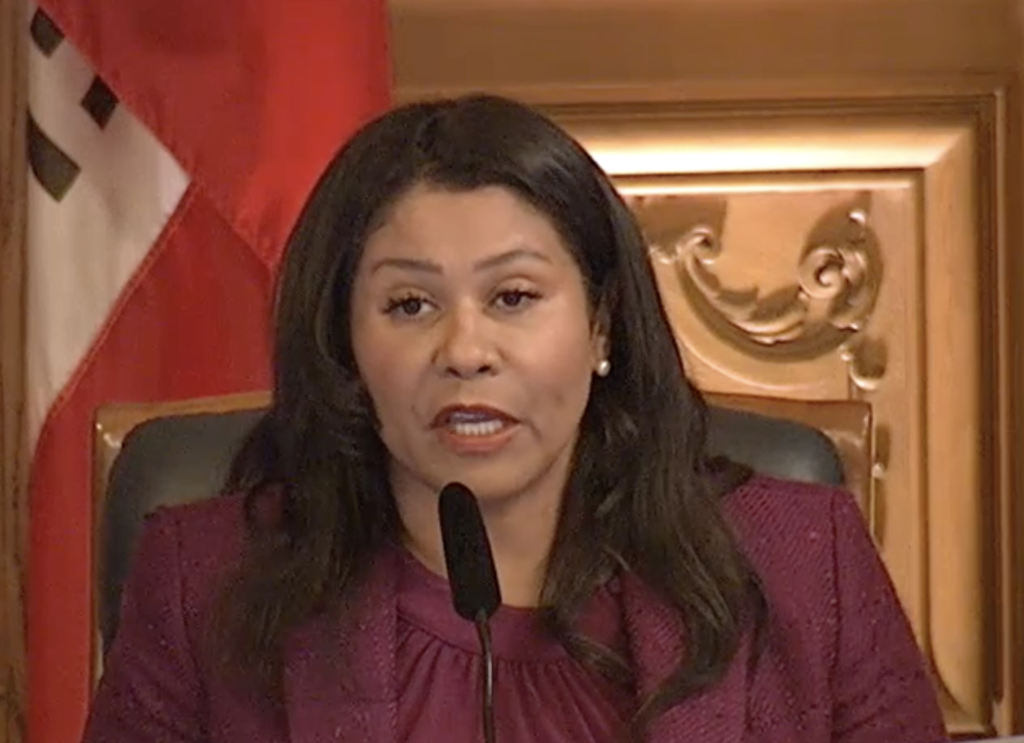Two of the city’s leading oligarchs, Ron Conway and Chris Larsen, have donated a combined $350,000 to a measure that will undermine police accountability and won’t do much to address public safety—in fact, it could have the opposite effect.
Larsen, the founder of Ripple Labs, gave $250,000, and Conway, who has long tried to be a kingmaker in this city, gave $100,000, to a group called The Committee for a Safer San Francisco, SF Ethics Commission records show.
That group supports Prop. E, Mayor London Breed’s proposal that would allow police to avoid paperwork after the use of force, engage in high-speed chases in the city even if the suspects aren’t armed felons, and authorize the use of spy cameras and drones.

In essence, it takes away the authority of the Police Commission, which Breed is unhappy with, to make these policy decisions.
The ACLU strongly opposes it. Police reform advocates have long said that cops in this crowded, dense city shouldn’t be using their cars to chase nonviolent suspects, since that can lead to all sorts of damage to innocent bystanders and property. And telling cops they don’t have to be accountable for use of force is a recipe for … more use of force.
Not sure how this helps public safety.
Interestingly, although numerous media reports have cited Conway as a big donor, the Ethics files show a Ronald Conway with an address in Tiburon as the person who put up the money.
Ronald C. Conway, the founder of SV Angel, a venture capital firm, is registered to vote at a luxury complex on Market Street in San Francisco, voter registration records show. His son, Ronald J. Conway, is registered in Tiburon.
The Ronald Conway who donated the money didn’t use a middle initial. Under “occupation,” he lists “investor, SV Angel LLC.”
A 2022 article on the Conway family reports that Ronald J. Conway used to work for Google and now has his own VC fund, called A.Capital Ventures.
Curious.
At any rate, why would a couple of tech billionaires be funding a measure addressing police policy in San Francisco? Larsen told The Standard that the mayor asked for the money, and he gave it because “society ‘overcorrected’ after the murder of George Floyd.”
Larsen also gave $100,000 to a Breed measure that would require welfare recipients to take drug tests—a proposal that is completely infeasible: Who is going to test the more than 5,000 people who get city benefits, and how often? If people fail, the mayor says, they can enter treatment—but there aren’t enough treatment beds or outpatient facilities for the folks seeking help right now, and there’s no plan to increase funding for the future.
So the police and the drug-testing measures are pretty pointless as public policy. But that’s not why they are on the ballot, and why Breed and her Big Tech allies are putting so much effort into them.
This is about two things: Getting Breed’s name and image out there on popular anti-crime and anti-homeless messages, and bringing out conservative voters to help the oligarchs take over the local Democratic Party in March.
Breed’s in political trouble. Her poll numbers are terrible. So she’s taking a page from the Book of Gavin Newsom: Pick on an unpopular, vulnerable community, and use an attack on them as a tool for your own political career.
For Newsom, it was something called “Care, Not Cash,” a ballot measure that took away most of the direct payments to many people in poverty. It was, and is, a failure—but it got Newsom elected mayor, and now he’s the governor.
Breed had apparently decided that attacking the unhoused makes good political sense, and so far, the polls show she’s right: The drug-testing measure is popular.
Using ballot measures as a way to drive turnout is an old political tactic. The March primary for California lacks the kind of voter appeal we had four years ago, when Sen. Bernie Sanders was challenging Joe Biden for the Democratic presidential nomination. Sanders won California, with huge numbers of progressive voters going to the polls to support him. The so-called Bernie Bump helped other progressive candidates and measures, too.
This time: It’s just Joe. There’s a primary for US Senate, and some progressives will turn out to support Barbara Lee, but it’s not going the have the impact of a contested presidential race.
But control of the San Francisco Democratic Party is also at stake, and that’s going to be critical in November. The mayor’s race is on the same ballot as the presidential race, which means much higher turnout—but it also means that some voters who don’t pay much attention to local politics and only vote in presidential years will be paying attention to the Democratic Party endorsement for mayor.
The same goes for the supervisor races.
The billionaires have been raising money and are running a slate of candidates for Democratic County Central Committee. So are the progressives.
I am going to guess here that some of the Big Tech money is going into that conservative slate.
If the right wing of the party takes control of the DCCC, it will determine the endorsements in November.
And the more conservative voters turn out to empower the cops and attack welfare recipients, the better chance the mayor and her allies have at winning.
Defeating the progressives means fewer moves to tax the rich, regulate tech, address economic inequality, and protect vulnerable tenants and communities.
That’s what this is all about.






